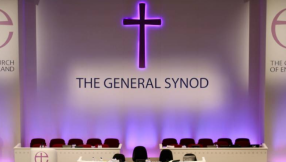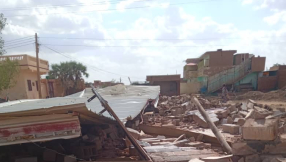Harsh Winter Continues to Impair South Asia Earthquake Survivors
|PIC1|In a situation report released this month, three agencies – Church World Service, Action by Churches Together, Norwegian Church Aid – noted that "among the roughly 2.2 million people still living in tents or in makeshift shelters, several hundred thousand found themselves completely isolated again, lacking food and material to resist the winter and the abundant snow,” according to the United Methodist News Service (UMNS).
“The U.N. estimates that as many as 400,000 people are in higher areas where it is feared that snow and rain will make it harder for helicopters and trucks to reach them," the report added.
Another situation report from CWS/ACT/NCA, released on Jan. 20, showed that 839,997 winterised tents had been distributed, along with plastic sheeting and blankets. A total of 115,883 shelters had been built above 5,000 feet, with another 158,076 shelters built in lower elevations.
"The major challenge with regards to camp management at this time is the service and food delivery to spontaneous camps," the report said, according to UMNS.
The Pakistan Army also has built shelters and is "working round the clock in affected areas of Mansehra, Battagram, Kohistan and Shangla districts to save quake survivors from severe cold."
|TOP|More than two feet of snow in higher elevations and drenching rains in the foothills have made the work more difficult and disrupted helicopter flights.
Inclement weather prevented former President George H.W. Bush, serving as the U.N. special envoy for the South Asian Earthquake Disaster, from traveling by helicopter to Muzzafarabad on Jan. 16.
Instead, after spending the night at a camp for survivors in Islamabad, Bush expressed admiration for the spirit of the survivors and stressed the need to keep supply lines open during the harsh winter, according to U.N. reports.
Health problems are expected to increase because of the weather, according to Usman Adam, who works in the information department at CWS Pakistan.
|AD|In addition, "the overwhelming majority of the shelter is still not winterised, and rain and snow are causing further road blockages and landslides," he said, according to UMNS.
The United Methodist Committee on Relief (UMCOR) – which has assisted relief work through CWS, International Blue Crescent, Church's Auxiliary for Social Action and other groups – is encouraging United Methodists to continue contributing to the relief effort. As of the end of November, UMCOR had received US$373,355 for earthquake relief. Year-end totals are not yet available from the United Methodist Board of Global Ministries, UMCOR's parent agency.
Donations to the United Methodist relief effort can be marked for "UMCOR Advance #232000, Pakistan Earthquake," and placed in church offering plates or sent to UMCOR, P.O. Box 9068, New York, N.Y. 10087-9068.
Contributions also can be made by phone at (800) 554-8583 or online at http://www.methodistrelief.org. If funds are intended for recovery in a specific region, that should be noted. More information is available at http://gbgm-umc.org/umcor/emergency/earthquake/.
Joseph Alvarez
Christian Today Correspondent













